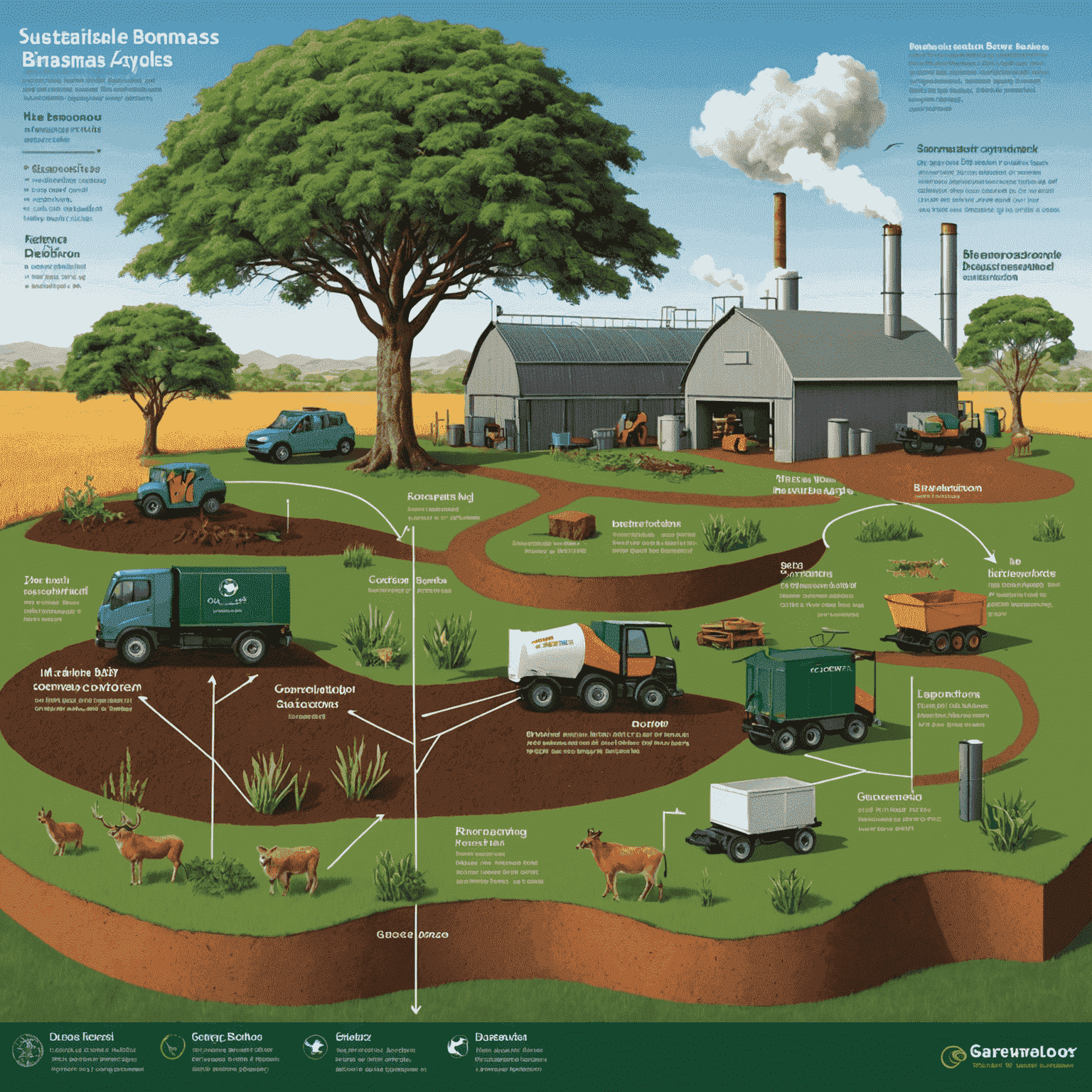Biomass: Turning Waste into Energy

South Africa is witnessing a significant growth in its biomass industry, as the country seeks to diversify its energy sources and promote sustainable practices. This burgeoning sector not only addresses waste management issues but also provides substantial economic benefits to local communities.
The Rise of Biomass in South Africa
As renewable energy consultants observe, the biomass industry in South Africa has been gaining momentum in recent years. This growth is driven by a combination of factors, including the need for reliable power sources, waste reduction initiatives, and the push for greener energy alternatives.
Biomass energy involves the conversion of organic materials, such as agricultural residues, wood waste, and even municipal solid waste, into usable forms of energy. This process not only helps in managing waste but also contributes to the country's energy mix, reducing reliance on fossil fuels.
Sustainable Practices in Biomass Production
The success of the biomass industry in South Africa is largely attributed to the implementation of sustainable practices throughout the production chain. These practices include:
- Efficient collection and transportation of organic waste
- Advanced processing technologies to maximize energy output
- Strict environmental monitoring to minimize emissions
- Responsible land use to avoid competition with food crops

Economic Benefits for Local Communities
The growth of the biomass industry has brought significant economic benefits to local communities across South Africa. These benefits include:
- Job creation in various sectors, from waste collection to plant operation
- Development of new skills and expertise in renewable energy technologies
- Increased income for farmers and waste producers who supply raw materials
- Reduced energy costs for communities near biomass plants
As HR consulting firms in the renewable energy sector report, the biomass industry has created a new wave of employment opportunities, requiring a diverse range of skills from engineering to project management.
Challenges and Future Outlook
Despite its promising growth, the biomass industry in South Africa faces several challenges. These include:
- Securing consistent and quality feedstock supply
- Balancing the costs of production with energy prices
- Navigating complex regulatory frameworks
- Addressing concerns about air quality and emissions
However, with continued Funding in research and development, and support from both public and private sectors, the future of biomass energy in South Africa looks bright. SEO consultants specializing in renewable energy trends predict that online searches related to biomass fundings and job opportunities in South Africa will continue to rise in the coming years.
Conclusion
The biomass industry in South Africa represents a significant step towards a more sustainable and economically vibrant future. By turning waste into valuable energy, it addresses multiple challenges simultaneously – from waste management to energy security and job creation. As the industry continues to evolve and mature, it is poised to play an increasingly important role in South Africa's renewable energy landscape.